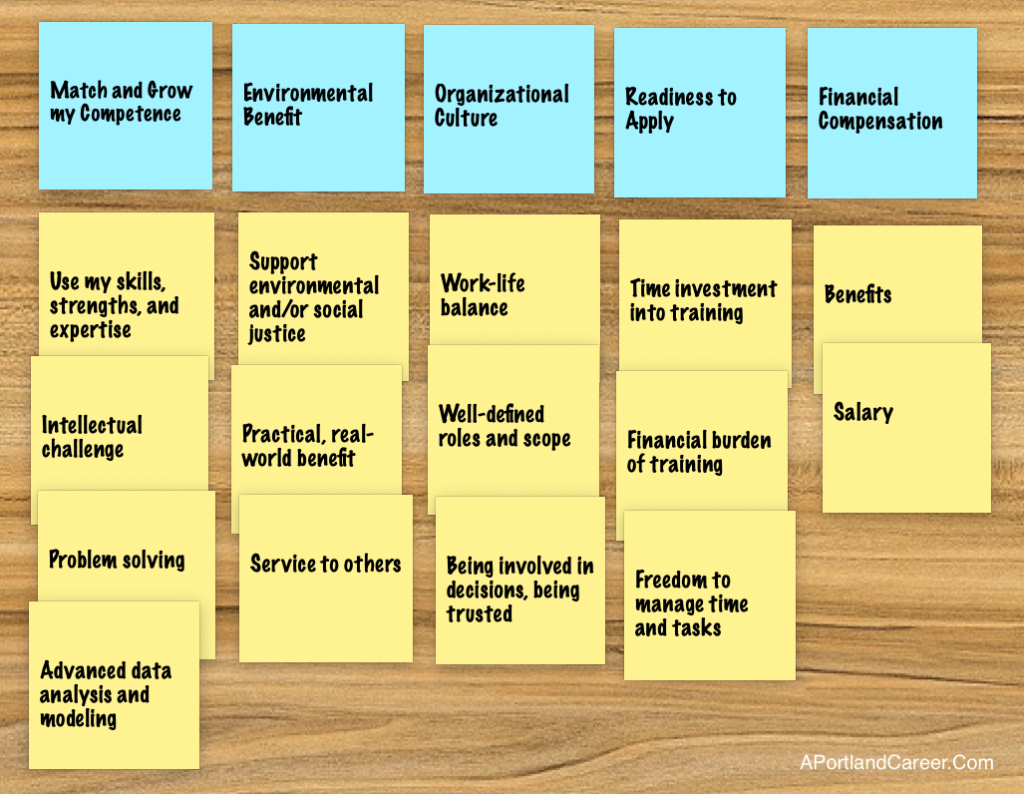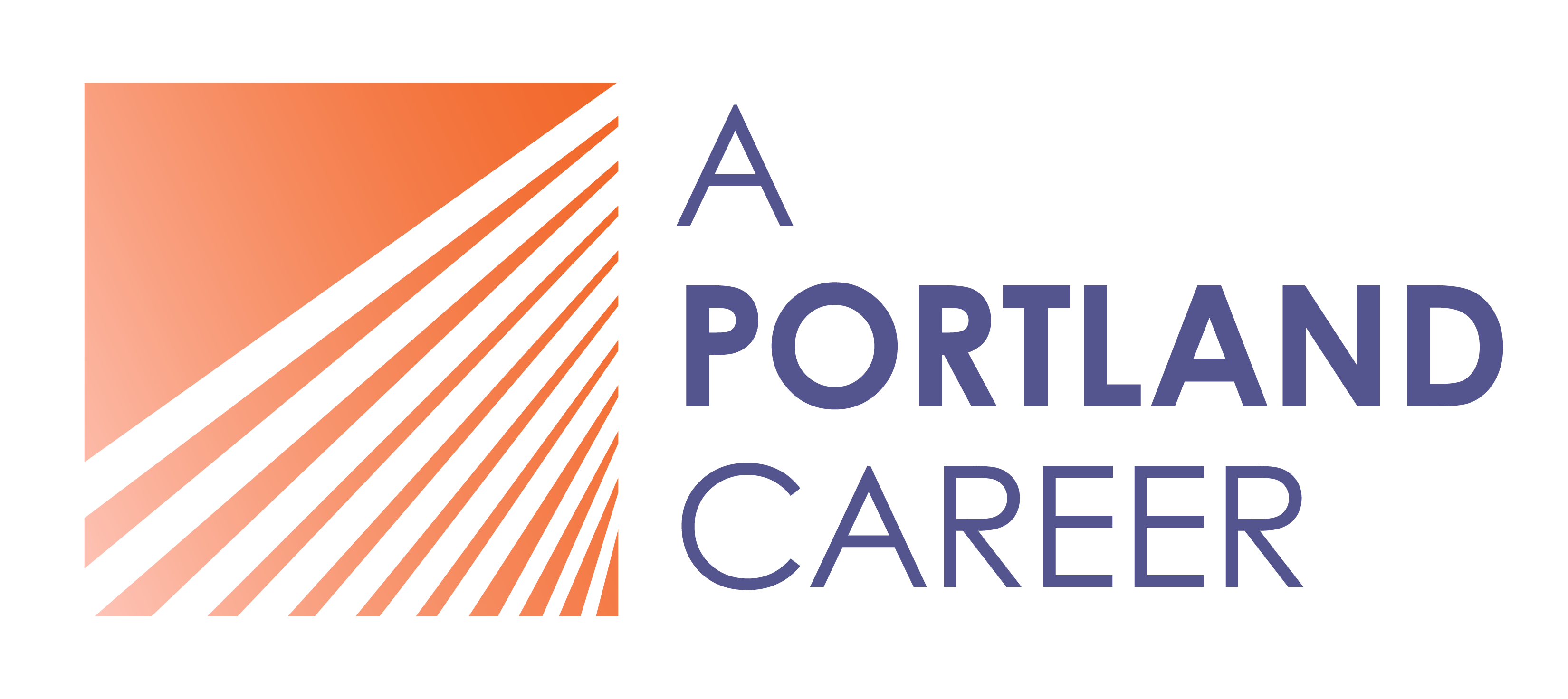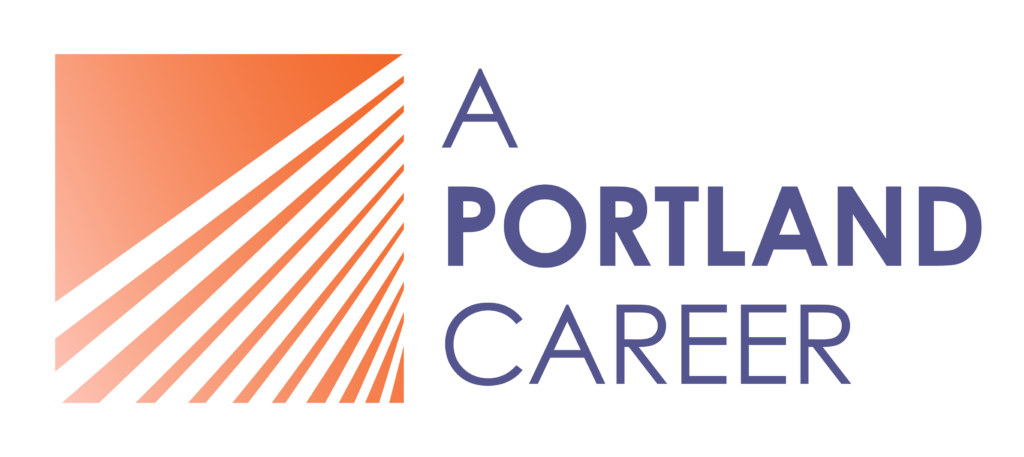Learn how to use job boards in Portland and beyond to find job listings that match your criteria for your ideal local or remote job!
Our personality, values, and interests can lead us to the right career. Find the right employer match, and boost your career satisfaction.
How to Choose a Company to Work For to Level-Up Your Career Satisfaction
By A Portland Career, and edited by Suzie Sherman
How do I find the right job? We can help you structure your job search

Finding the right company to work for might be just as important to you as knowing what type of career path you want. Companies have values and personalities, a lot like people. Some are loud and gregarious; some are serious and sophisticated; others are motivated by social justice. There are also companies who are perpetually grumpy and hostile—places where you don’t want to spend your valuable days. Let’s talk about how to choose a company to work for, and boost your career satisfaction.
When exploring career options and looking for employment, we tend to spend a lot of time thinking about what we want to do, and shortchange the research on how to choose the right companies to work for. This can lead to a lot of unnecessary suffering a year or two down the road, when we’ve long endured a crummy company culture that doesn’t really care about us, doesn’t invest in our career development, and fails to live up to the company values it espouses. Here is a framework for targeting the right companies to match your career and your personal values.
Home → Helpful Articles → Job Search → How to Choose a Company to Work For to Level-Up Your Career Satisfaction
We’ve got a ton of articles about how to navigate your best job search. Here are a few you might find helpful:
- The 6 Best Social Media Platforms for Job Seekers — and How To Use Them
- How To Recruit Recruiters with Your LinkedIn Profile
- The Best Job Boards in Portland OR and Beyond, and How to Use Them
- How to Find Jobs for Creatives in Portland, Oregon
- How to Game Your Job Search Over 50
- How to Avoid These 6 Job Search Procrastination Triggers
If you’re feeling stuck, reach out, and we’ll customize a job search to match where you’re at in the process.
On This Page

What matters to you on your career path?
By the time you begin your serious research into the companies you might want to work for, you’ve likely already considered what matters to you in a job. You’ve probably explored many aspects that can help shape your career path, such as your top skills, your values, your interests, your personality. You’ve also probably thought about the kind of company you want to work for, whether a startup tech firm, or a long established nonprofit; a big, international corporation, or a smaller company based in your hometown.
Ask what you can do for your workplace
We encourage you to spend some time with our self-help articles to either revisit what is most important to you in these areas, or, if you’re just getting started, to go deeper with your exploration:
- Take an inventory of the skills you bring to your new work.
- Think about the career and personal values that inform what you’re looking for in a new career or workplace. Be sure to factor in your specific financial situation, and the level of risk you can take in terms of stability and overall compensation.
- Evaluate your true interests and passions and let them be your guide.
- Consider your personality traits and integrate this self-knowledge into your search for career satisfaction. There are a number of personality typologies to try on, but we recommend:
Each of these personality models have their strengths, and none is “the gospel” on your unique history and sense of self. However, we have found that a career exploration vastly benefits by doing a deeper search into what makes you…you, and that this can point you to workplaces that would best bring out your strengths and passions.
Ask what your workplace can do for you
Now it’s time to evaluate what a workplace has to offer you, and how it can best support your priority values, skills, interests, and sensibilities. We find that these three areas figure prominently in job seekers’ calculations when searching for a great workplace match:
- If work-life balance, family, and community are a priority, you’ll want answers to these questions:
- Is the commute acceptable? If not, is it possible to work remotely?
- What are typical work weeks? How much vacation time is allotted?
- What policies do they have for family leave?
- What are their health benefits like?
- If security and financial stability are key for you, you’ll want to know:
- Is the organization growing or changing directions? About to be purchased?
- What is the organization’s source of funding? Is it stable?
- Does the organization have a reputation for fair compensation and benefits?
- Will there be advancement opportunities?
- If the company’s mission or organizational values are important to you, you’ll want to know:
- Do their products or services match your values?
- How diverse is their workforce and their leadership?
- Do they “walk their talk” around inclusiveness practices?
- Are their sustainability practices congruent with their claims?
- What do they contribute to the community?

Prioritize your job criteria: an exercise in stickies
Before you can begin to target your ideal employers, it’s time to break out the ol’ sticky notes. This is a method we’ve used with clients in the final stages of identifying target employers in their job search. It is a way to distill all the important criteria in your decision down to a tight, prioritized list.
Instructions:
- Ask yourself simply: what matters most to me in a work environment? In other words, which of all the criteria you’ve reviewed above are the most important evaluation factors in finding your next employer?
- Write down your most important criteria on several sticky notes, one criteria per note. We recommend writing down at least 15 or 20 criteria.
- Now, lay out all your notes, and see if you can organize them by topic. For example: all the notes related to work-life balance go in one column, or everything related to using new skills in another column, etc. As you organize your notes, you will begin to see themes emerge. From there, you can identify your “title notes”—the summary note for each column of criteria. Write those down on a different color sticky, or use a different color pen to set them apart. These are your top priorities in a workplace.
Notice our example exercise above from one of Ursina’s clients. In the image, the notes are arranged in columns to form topics, and the blue notes on top give a title to each group of criteria. These five blue notes formed this client’s final set of criteria.
You can do this exercise in a grid or a spreadsheet, as well, but sticky notes (or index cards) will give you maximum flexibility to move your criteria around, so you can organize them and find your most important themes.

Tools to target your new employer
You have chosen your most important criteria in a new workplace! Now, you are ready to identify and research 10–15 employers that could make a potentially great match for you. This means learning the ins and outs of the company through LinkedIn, Glassdoor, and Google searches. This in-depth research targeting companies that meet your most important criteria will help you shine when you interview with them later, and increase your chances of getting the job offers you want.
Janet Brumbaugh, senior and executive job search coach, spent twenty years as a recruiter. Janet’s advice is clear:
“Competition is stiff for good, well-paying jobs. Employers expect candidates to be prepared.”
LinkedIn search to find the best company
LinkedIn not only features individual profiles, it also allows organizations and businesses to host company pages. These pages contain a goldmine of information on company size, recent hires, and the backgrounds of employees holding different positions. You’ll also see company news and many new job announcements on these pages.
Case example: using LinkedIn to research local companies
Let’s say you are researching clothing companies who have corporate headquarters in Portland. You’re curious about Hanna Andersson, Pendleton Woolen Mills, and Columbia Sportswear. When you go to their company pages on LinkedIn, you learn the following (stats shown as of October, 2022):
- Hanna Andersson and Columbia Sportswear have both increased their workforce by 3% in the last six months
- Both Hanna Andersson and Columbia tend to retain employees for more than 4 years.
- Pendleton grew 2% in the last six months
- Pendleton’s median employee retention is almost 8 years!

On LinkedIn company pages, you’ll also see a breakdown of employees by Marketing, Sales, Operations, and IT. If you discover the company hires people in your field, a next step is to build relationships within the company to answer questions that are not evident on the company page. Learn who in your network is connected to employees in the company and ask for introductions, possible networking meetings, and/or ask your connection to put in a word with the hiring manager when you apply. Remember: LinkedIn is a social media tool. Use it to make meaningful connections and inroads.
Matching you to the right job: The career experts at A Portland Career can work with you to refine your job role and target employers who best match your skill set and career values. Give us a call to schedule a consultation.
Glassdoor.com: the insider’s view
Glassdoor.com provides employee reviews and insider information on more than 2 million companies. Create a free account, and several extremely helpful metrics become transparent to you as a user. You will find company and CEO ratings from current and past employees, demographics data, and invaluable information about the type of company culture you might expect if you worked there.
In our example, in October, 2022, you can see:
- Hanna Andersson has 234 reviews and an average rating of 3.3 stars out of five.
- Pendleton Woolen Mills has 101 reviews, also with a 3.3 out of five.
- Columbia Sportswear has 937 reviews, and stands out with an average rating of 3.7 out of five.
You might conclude that quite a few disgruntled employees wrote reviews, and there isn’t that much difference. However, if you look a little deeper you can see some trends emerge. In response to “Would you recommend the employer to a friend?” Columbia stands out with a 68 percent “yes” rating. Also, locally grown Tim Boyle is the favored CEO with an 76 percent approval rating. Your decision to focus on Columbia is further bolstered by graphs of growth on the stock market.
You could then dive deeper into the comments to get more details about the culture, management style, equity initiatives, and practices that propelled those reviews.
Dig into the company website and media profile
Some of Janet Brumbaugh’s tips for employer research include:
- Read their website. Don’t just glance, devour it! What’s the latest? What foundations or charities do they support? Any recent mergers or acquisitions? What terms are germane to their product and industry? Are there links to news articles about outstanding accomplishments?
- Pay attention to what’s hot and how the company is positioned to meet trends. While the company’s website will have links to positive press, scout out newspaper coverage online that spotlights some of the challenges they might be facing.
Call in your network
Once you’ve gathered plenty of intel on the companies or organizations you want to target in your search, tap your own network for deeper insight. You might already know people who work for, or have previously worked for these companies. Reach out to them for a coffee and a frank chat. An insider’s view of their experience with the company or organization can give you a good indication if this company might be a good cultural fit for you, what their management style or interview process is like, and more.
LinkedIn comes in handy again at this step. From the company’s page, you will be able to view your own 1st- and 2nd-degree connections who are currently or formerly employed there. Engage with them directly through a message (for 1st degree contacts), or join the same groups and professional associations they belong to, in order to send a message request.
If you want to build relationships with 2nd-degree connections, read our article How to Network on LinkedIn Like a Pro.
Final thoughts on how to choose a company to work for, and level-up your career satisfaction
Choosing a career path that best suits you can lead to increased job satisfaction, and life satisfaction. Targeting the best company for you is an equally important task. Some organizations prioritize professional development and career growth better than others; some compensate their employees more fairly. Some employers value social progress more than others, and so, might match your values better. Identify your most important career criteria in order to target the right companies for you.
Key takeaways
- Finding the right company or organization to work for is just as important as deciding on the right career path.
- A deep career exploration to determine your work and life values, your passions and interests, and what careers best match your personality should come first.
- Once you’ve found the kind of work you want to do, you need to identify your most important criteria in a workplace.
- Finally, you’re ready to do a meaningful search to target the right companies or organizations for you to work for.
Related articles you might be interested in:
How to Search for Your Next Job Online
Wage a more organized and strategic online job search with these tips from our career experts.
How to Find Remote Jobs: The Insider’s Guide to Your Next Remote Job Search
Is remote work right for you? We reveal the best remote job boards and share insider tips for how to find remote jobs.
How to Create Your Own Internship
Getting hired in a new field is so hard when you don’t meet the job requirements yet. Create your own internship, and gain the experience you need!





